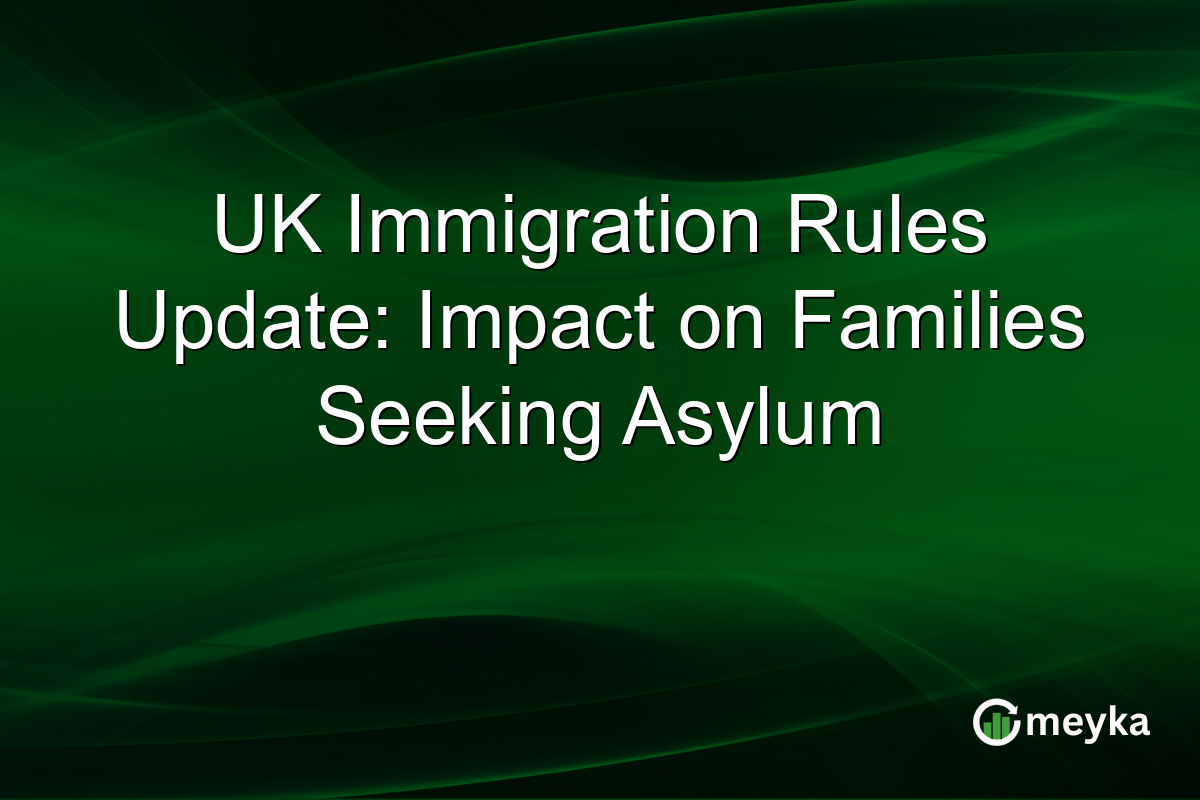UK Immigration Rules Update: Impact on Families Seeking Asylum
The UK government’s latest update to immigration rules has sparked widespread debate and concern, especially for families seeking asylum. The goal is to reduce illegal migration and curb people-smuggling activities. However, these changes have intensified political debates, impacting public perception of UK immigration policies. Let’s explore how these new rules affect family immigration and political discourse.
Continue Reading on Meyka
This article is available in full on our main platform. Get access to complete analysis, stock insights, and more.
Read Full Article →





